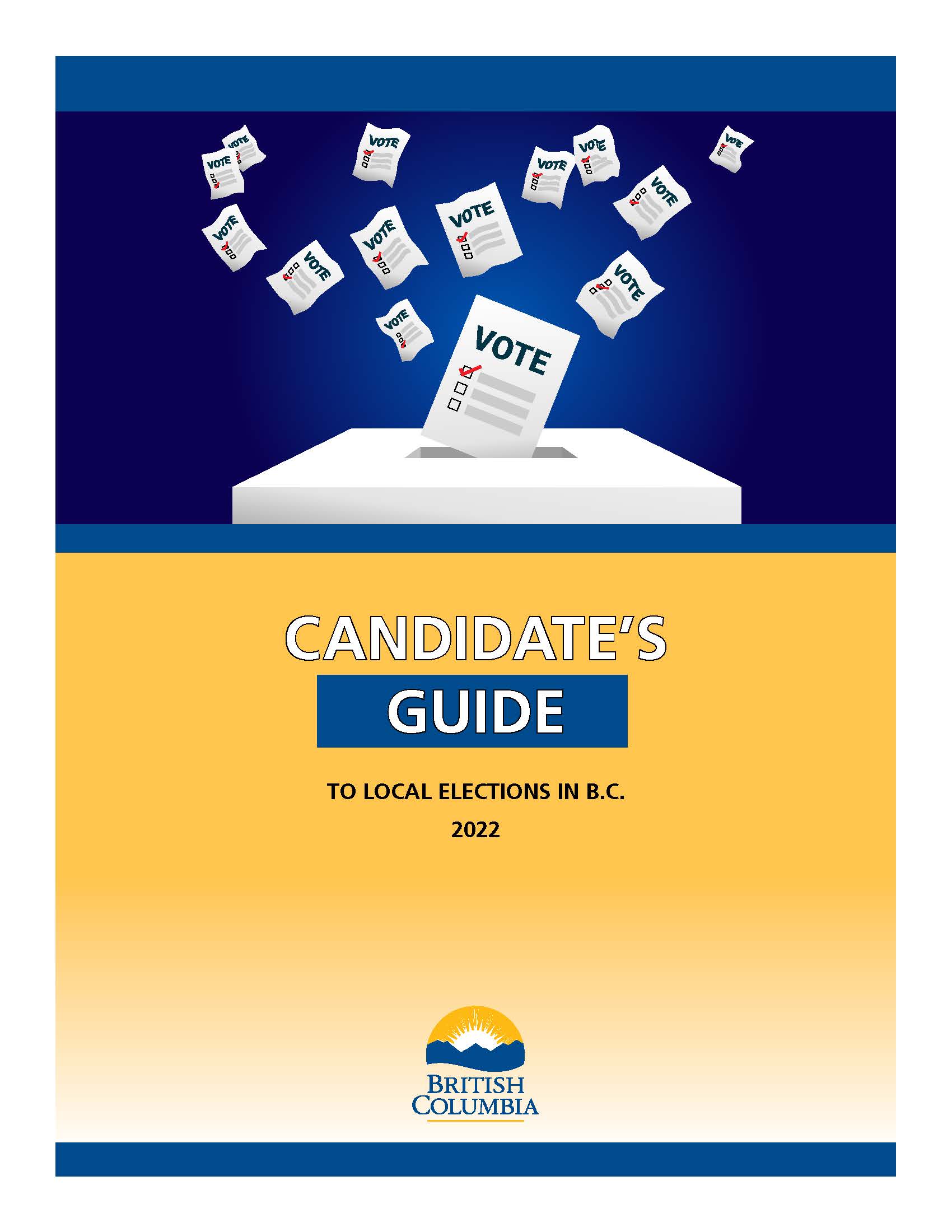Election advertising and campaign financing rules
There are a number advertising and campaign financing disclosure requirements that candidates, elector organizations and third party sponsors are required to follow before, during and following general local elections.
Campaign financing periods
Election period
The election period for a general local election begins at the start of the calendar year (January 1) in which the general local election will be held and ends at the start of the campaign period (28 days before general voting day). There are a number of recording, reporting and disclosure requirements that apply to candidates, elector organizations and third party sponsors during the election period.
Pre-campaign period
The pre-campaign period set out in the Local Elections Campaign Financing Act starts on the 89th day before general voting day and ends on the 29th day before general voting day. During the pre-campaign period election advertising, that promotes or opposes a candidate or an elector organization through, for example billboards or commercials, must include sponsorship information.
Campaign period
The campaign period set out in the Local Elections Campaign Financing Act starts on the 28th day before general voting day and ends when voting closes at 8:00 p.m. local time on general voting day. During the campaign period, all types of election advertising must include sponsorship information and election advertising by third party sponsors is subject to expense limits. Campaign financing rules and expense limits apply during the campaign period for candidates and elector organizations.
Election advertising rules
Election advertising rules apply to advertising that promotes or opposes the election of a candidate or an elector organization that is endorsing a candidate (e.g., directed advertising) during the pre-campaign and campaign period. In the campaign period, election advertising also includes a communication that takes a position on an issue associated with a candidate or elector organization.
Generally, all election advertising (e.g., signs, posters, brochures, billboard and commercials) transmitted during the pre-campaign and campaign period must include information about who sponsored and authorized the ad. The sponsorship information must be provided in English. There are also limits to the value of sponsorship contributions that can be provided to third party sponsors for each election campaign. There are also limits on election advertising expenses.
Campaign financing rules
Contribution limits
Campaign contribution limits regulate how much an individual can contribute to a candidate or elector organization on a per campaign basis. Individuals can contribute up to $1,250 to the election campaign of any one candidate, or elector organization and its endorsed candidates, for the 2022 general local elections.
Expense limits
Every candidate, elector organization and third party sponsor also has limits on the amount of money they can spend during the campaign period. Each jurisdiction (e.g., municipality, electoral area or specified parks board) and office (e.g., mayor and councillor) has its own limit – based on the office and population of the jurisdiction.
Recording and Disclosing
Candidates or their financial agent are responsible for complying with the campaign financing rules in the Local Elections Campaign Financing Act. This includes opening and depositing contributions to, and paying election-related expenses from, a candidate’s campaign account; and maintaining records for campaign contributions, election expenses and all other campaign-related transactions.
Candidates, elector organization and third party sponsors must file the required disclosure statement with Elections BC within 90 days following general voting day.
The Local Election Campaign Financing Act sets out what information the campaign financing disclosure statement must contain, including details about election expenses and campaign contributions related to an election campaign.
Compliance and enforcement
The Local Elections Campaign Financing Act sets out the election advertising rules for candidates, elector organizations and third party sponsors. These rules are administered and enforced by Elections BC.
Elections BC is also authorized under the Local Elections Campaign Financing Act to undertake investigations into possible contraventions of The Local Elections Campaign Financing Act and take compliance and enforcement actions as it deems appropriate.
Elections BC has additional investigative and enforcement tools to ensure compliance with the campaign financing and advertising rules in the Local Elections Campaign Financing Act. Elections BC can issue monetary penalties for a wide range of contraventions, including exceeding campaign contribution limits or expense limits for candidates, elector organizations and third party sponsors.
Learn more about being a candidate for locally elected office.
Guidance and resources
Elections BC
Contact information
Contact us if you have legislative questions about general local elections.
250 387-4020
1 800 663-7867


